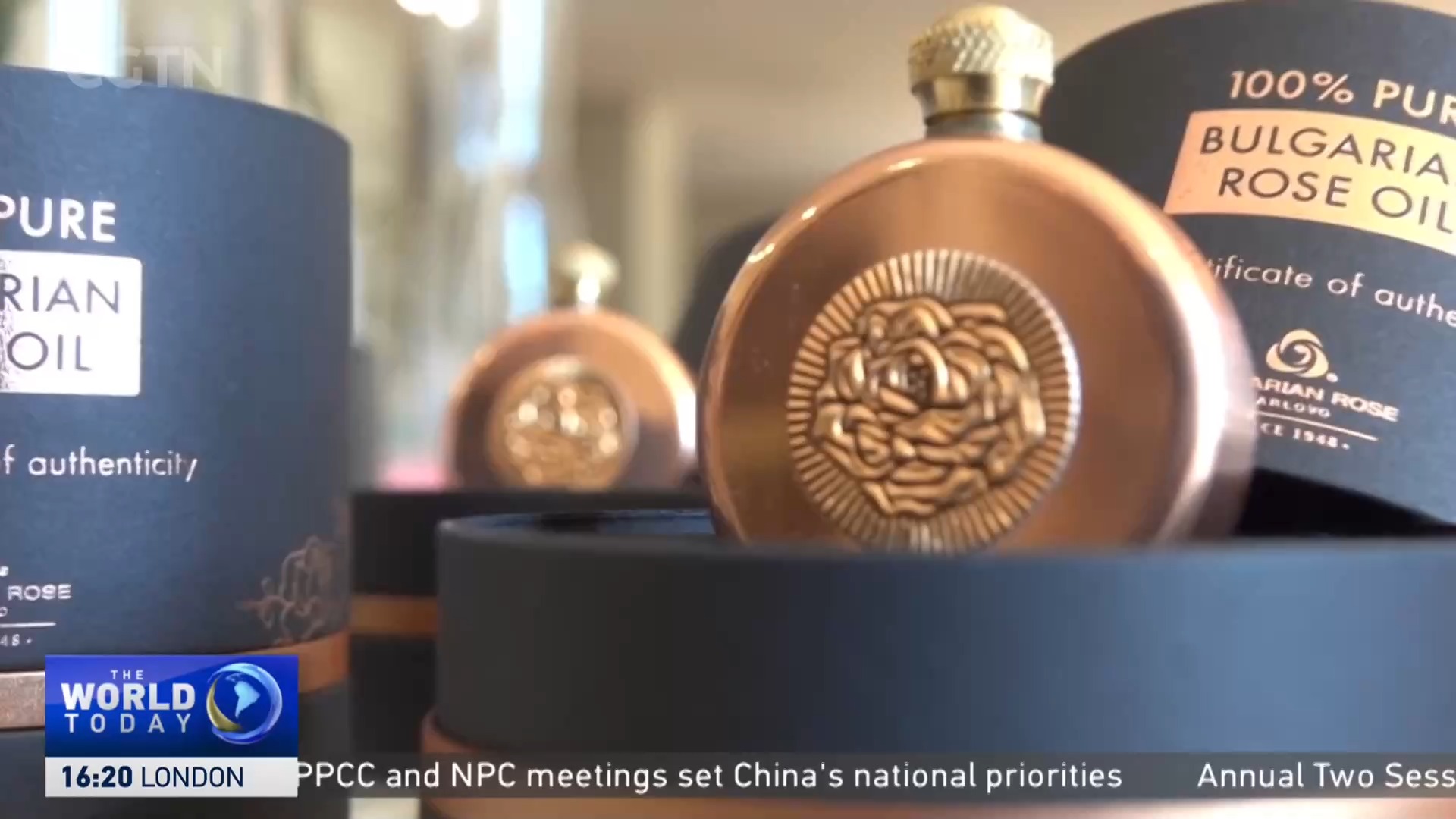02:39

Bulgaria is the European Union's poorest nation. But it's a world leader in the production of essential oils - in particular rose oil - for which its exports are responsible for three quarters of the world's total supply.
Most of those rose products come from the Rose Valley. Located in the foothills of the Balkan Mountains, in central Bulgaria, it's famous for being the world's largest producer of the unique Damascena rose.
At the height of the season, the Rose Valley fields are covered with tens of millions of rose flowers.
Thousands of workers have a short window of opportunity to pick the rosebuds, in order to make Bulgaria's famous rose oil. They must process the flowers as soon as possible, or the petals will lose their most important ingredients.
At the headquarters of the Bulgarian Rose company, the country's largest producer of rose oil, Nadelina Kiryakova explained the process.
READ MORE
Austria is using AI to protect biodiversity
The European bison: back from the brink
Saving the world's most endangered cat
"To make a kilogram of rose oil we need over three and a half tons of flowers. One kilo of rose oil contains not only the aroma but also all the active and magical properties of a one and a half million roses," Kiryakova told us.
The production line in Bulgarian Rose is slow these days, as it's low season. But in the heat of the summer, it produces hundreds of liters of rose water and oil, to export. Rose oil comes with a hefty price tag of almost $10,000 per kilogram.
For decades, the largest buyers have been famous French perfume companies. But, as Kiryakova told us, the Chinese market is definitely growing.
"We have good and successful relations with our distributors in China. They have marketed our products very well, making them well known to Chinese clients," Kiryakova said.
Economists say that China-Bulgaria trade relations are heading in the right direction - but that some trade barriers are slowing that expansion. Krastio Belev from the Bulgarian-Chinese Business Development Association pointed at some problems that Bulgarian exporters are facing.
"Yes, it has been growing, year on year, but we have been lagging behind the progress of our neighbors. I have to say that our companies are meeting some obstacles - both tariff and non-tariff obstacles," said Belev.
Yet there are no barriers to the uniqueness that Bulgarian rose oils offer.
Subscribe to Storyboard: A weekly newsletter bringing you the best of CGTN every Friday